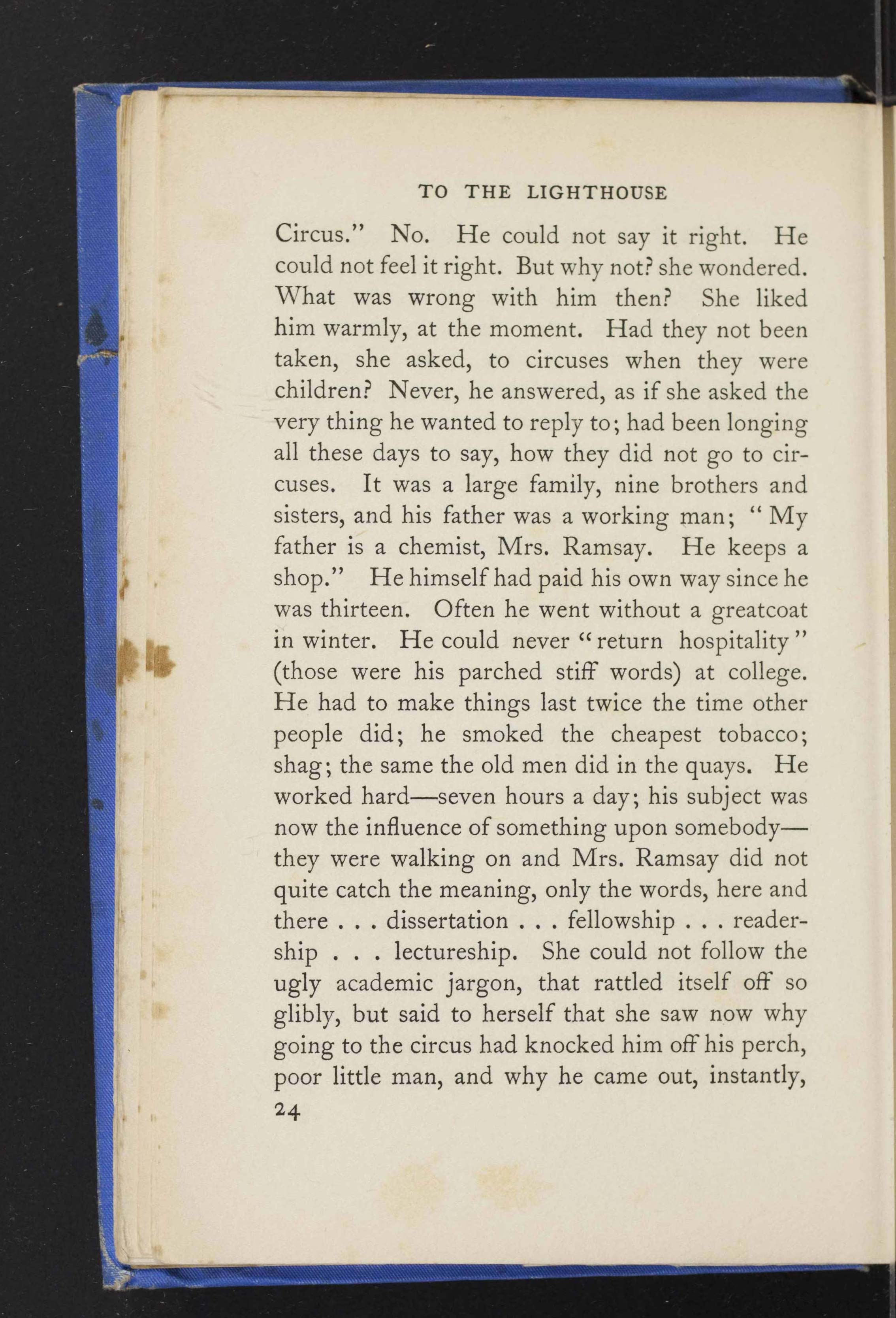
TO THE LIGHTHOUSECircus." No. He could not say it right. Hecould not feel it right. But why not? she wondered.What was wrong with him then? She likedhim warmly, at the moment. Had they not beentaken, she asked, to circuses when they werechildren? Never, he answered, as if she asked thevery thing he wanted to reply to; had been longingall these days to say, how they did not go to cir-cuses. It was a large family, nine brothers andsisters, and his father was a working man; "Myfather is a chemist, Mrs. Ramsay. He keeps ashop.” He himself had paid his own way since hewas thirteen. Often he went without a greatcoatin winter. He could never "return hospitality"(those were his parched stiff words) at college.He had to make things last twice the time otherpeople did; he smoked the cheapest tobacco;shag; the same the old men did in the quays. Heworked hard—seven hours a day; his subject wasnow the influence of something upon somebody—they were walking on and Mrs. Ramsay did notquite catch the meaning, only the words, here andthere . . . dissertation . . . fellowship . . . reader-ship . . . lectureship. She could not follow theugly academic jargon, that rattled itself off soglibly, but said to herself that she saw now whygoing to the circus had knocked him off his perch,poor little man, and why he came out, instantly,24









